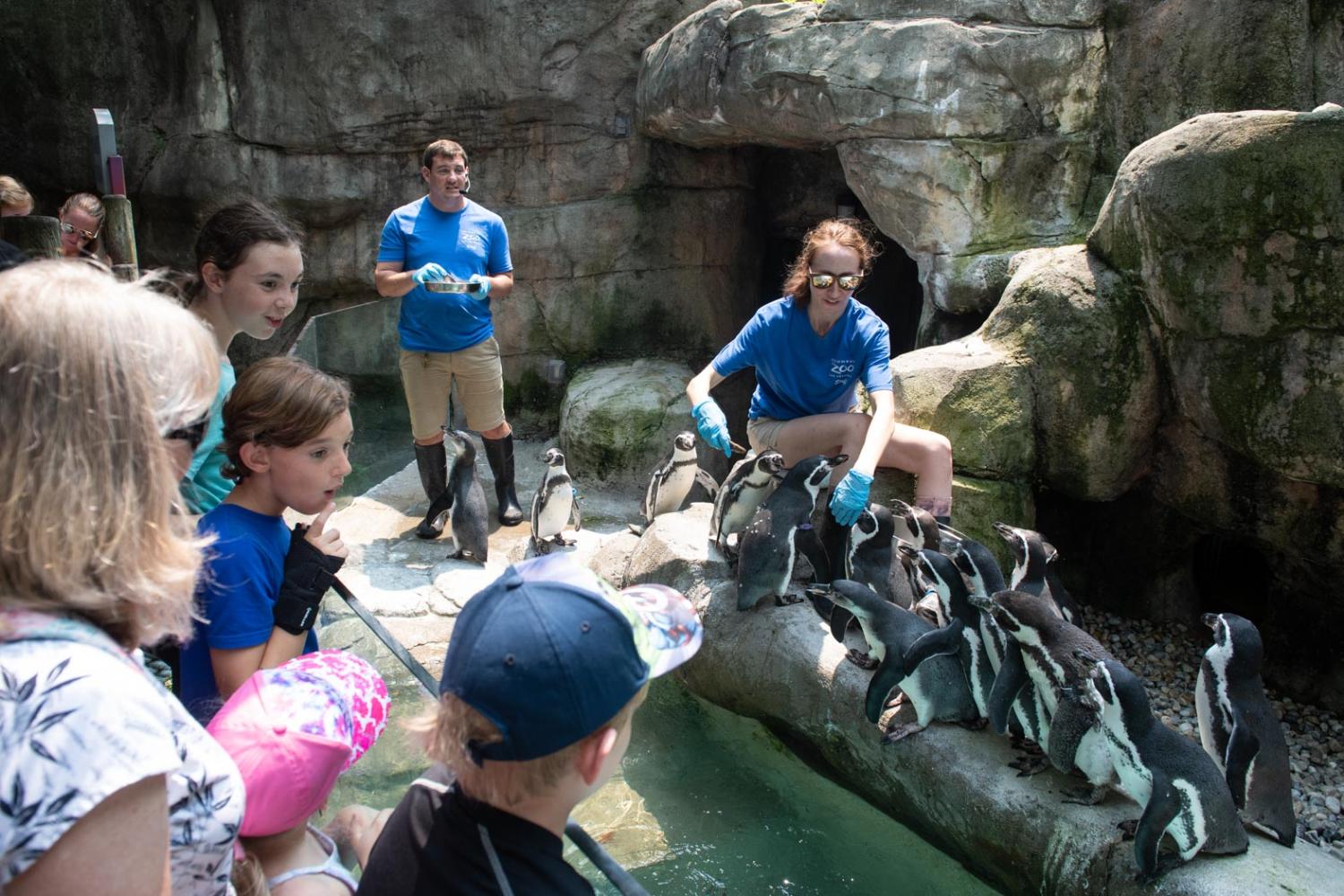Partners in Conservation
Learn about the Zoo’s financial commitment to holistic conservation efforts in Central Africa.

Included with admission to the Columbus Zoo, guests have the unique opportunity to learn from the zookeepers themselves as they present fun, informative sessions about the species they care for daily. With Keeper Talks, guests get the inside scoop on animals straight from the people who know them best...Our Animal Care teams!
Keeper Talks are presented by ![]()

Join our Animal Care team throughout the day at their respective habitats and learn more about:
Zoo guests can attend one or all! They're timed so you can easily attend each talk and then head to the next one.
| JAN 1 - APR 2 | Closed for the Season |
| APR 3 - APR 30 | Weekends Only |
| MAY 1 - AUG 16 | Daily |
| AUG 17 - OCT 25 | Weekends Only |
| OCT 26 - DEC 31 | Closed for the Season |
This information will be added in February 2026.
| TIME | SPECIES | ZOO REGION |
Feel empowered to make a different for wildlife! Expand your knowledge, adopt small lifestyle changes, and become a mindful consumer. Utilize these resources to guide you on your journey towards conservation and sustainability.
Our organization supports approximately 70 conservation projects in more than 25 different countries. We work to foster connections between people, animals, and the environment to find solutions that benefit all. Our teams are seeing extraordinary results, based on rescue and protection, conservation science, restoring habitats, and community empowerment and education. By simply purchasing a ticket and visiting the Zoo you are supporting these efforts. If you are inspired to do more, we invite you to learn more about the individual conservation programs that need your support.
When you visit the Columbus Zoo and Aquarium, you are supporting an organization dedicated to meeting—and advancing—the highest standards of care to assure that we are providing top quality health and wellbeing for the animals in our care. This includes everything from species-appropriate habitats, diet, enrichment, and social interactions. Our goal is for animals to thrive in their environment, and we achieve this by proactively evaluating all aspects of their wellbeing and making enhancements to their care, if necessary. Learn more about this evolving process and our commitment to the animals in our care.
Carbon dioxide emissions resulting from daily activities, such as driving or heating and cooling our homes, act like a heat-trapping blanket that surrounds the earth and increases ocean temperatures. We invite you to take the thermostat challenge: Two degrees up in the summer, two degrees down in the winter. This small change can have a big impact on polar bears and their sea ice habitat. Learn more about the actions we can take to support this vulnerable species.
In the ranges where orangutans live, the increased demand for palm oil contributes to the loss of millions of acres of their rainforest habitat annually. Palm oil is a crop used in many everyday foods and products such as cookies, crackers, toothpaste, and lotion. It is important to the economy and people in these areas, but this crop can be grown without cutting down the rainforest. You can support the companies who source sustainable palm oil by using resources from the Cheyenne Mountain Zoo and buying products that are rated “good” or “excellent”.
Many of the fish we enjoy are in trouble due to destructive fishing and farming practices. This guide provides more in-depth information about how and where to find sustainable sources of some of the most popular seafood items served in the U.S. Utilize the Seafood Watch resource guides from the Monterey Bay Aquarium to easily help you make responsible seafood choices when at restaurants or the grocery store.